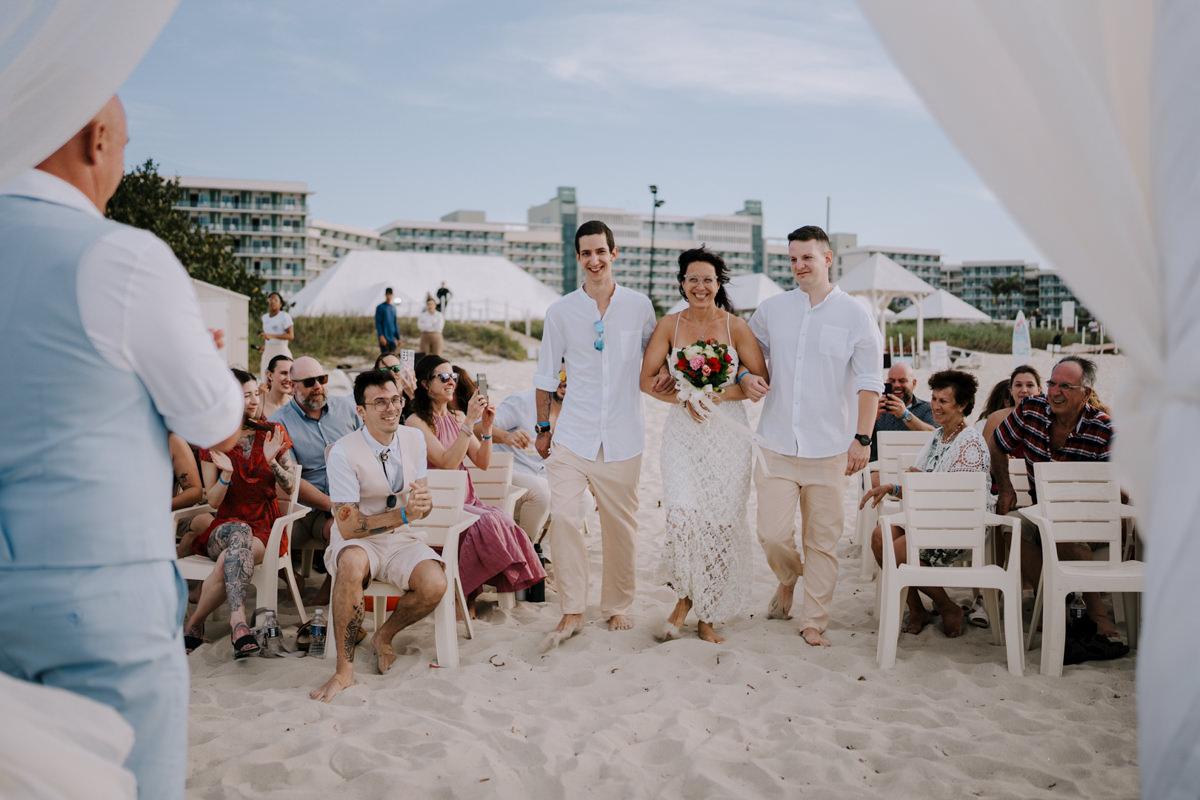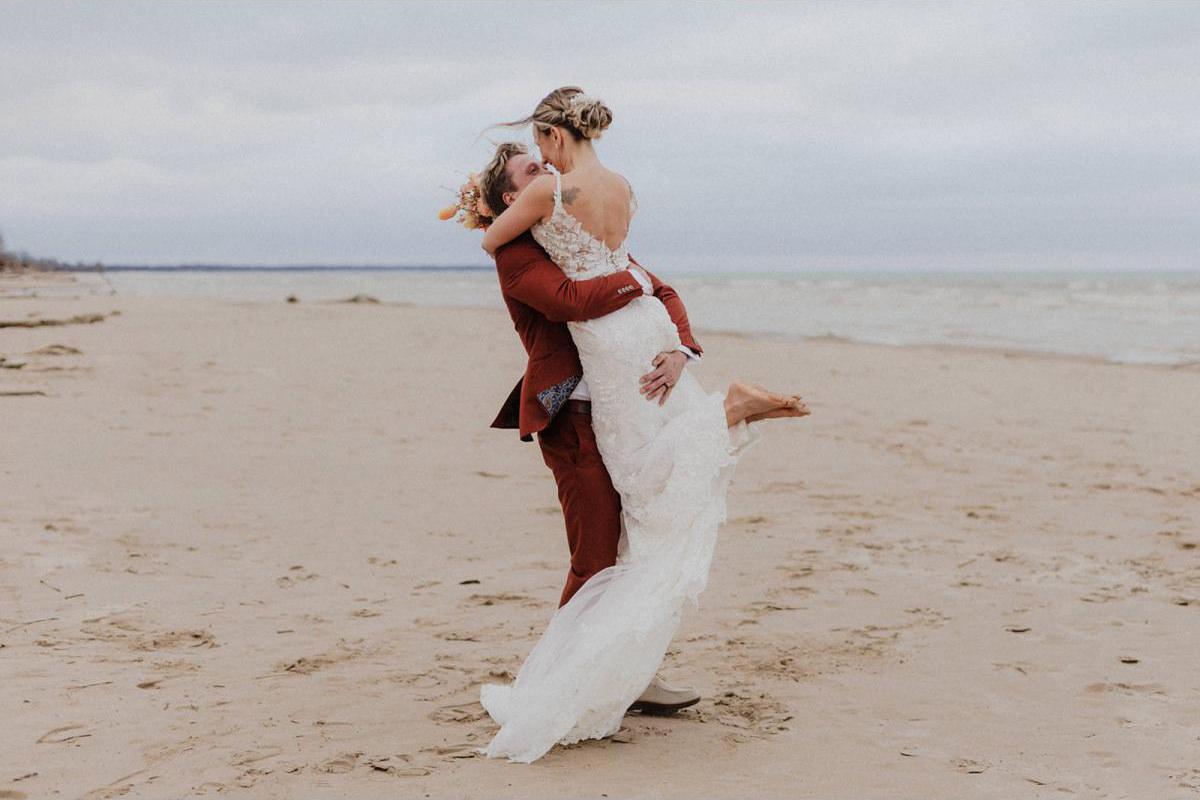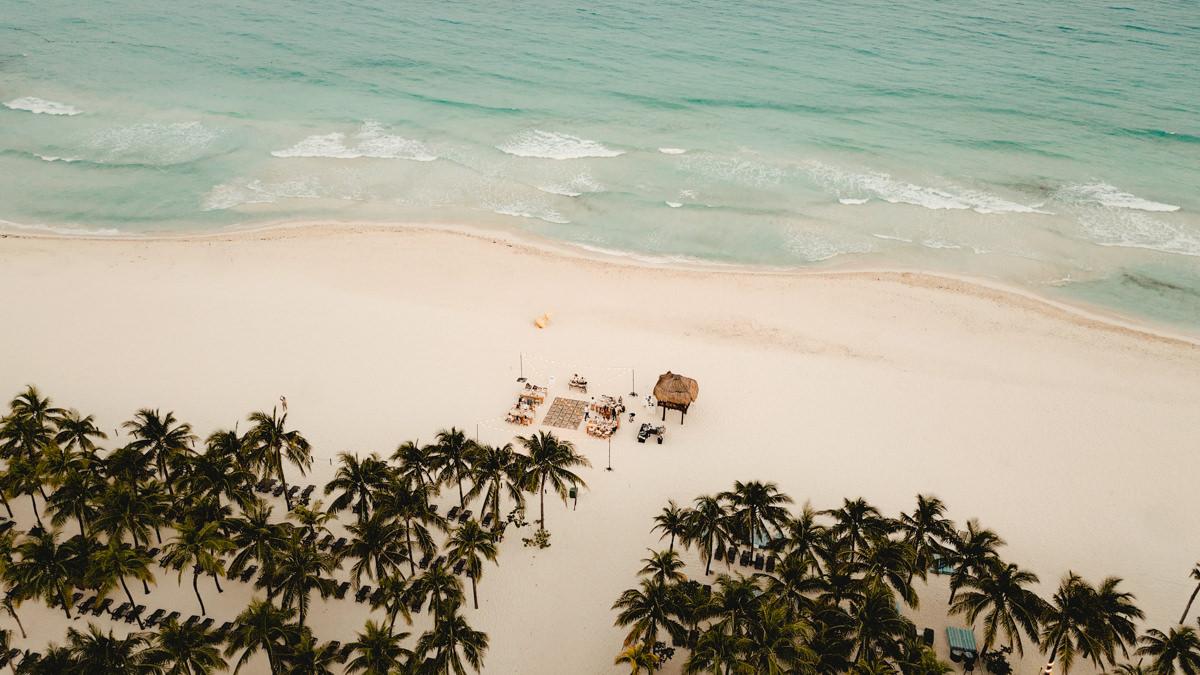If you’re planning an all-inclusive destination wedding from Canada, your resort isn’t just a venue—it’s also your caterer, planner, and in many cases, your default photographer. But unlike local vendors, resort wedding teams work on their own schedule. The earlier you understand that timeline, the less likely you are to feel ignored, overwhelmed, or rushed.
This guide explains when to start working with the resort, what to expect after you book, and how to keep your planning on track even if communication lags.

The Ideal Timeline: Start 10–12 Months Out
To set yourself up for success, begin working with your resort at least 10 to 12 months before your wedding.
Why Early Planning Matters:
- Lock in your preferred wedding date and ceremony site
- Get first choice of wedding packages and time slots
- Reserve room blocks and group travel rates
- Avoid surprises with flights, transfers, and vendor availability
Some resorts open bookings 18 months in advance, so starting early gives you more options and less stress.
→ Read: How to Plan an All-Inclusive Destination Wedding (From Canada)
After You Book: What Really Happens
Many couples are surprised to learn that booking the resort doesn’t mean planning begins right away.
Expect a Waiting Period
- Most resort wedding departments won’t begin communication until 6–8 months before your wedding
- Final planning for things like flowers, reception layout, and timeline often doesn’t start until 3–4 months out
Read: Destination Wedding Timelines: How They Differ (and How to Plan Yours Right)

Photographer Insight
“I’ve worked with couples who booked their resort a year in advance, but didn’t get a planning email until six weeks before the wedding. If you want things to go smoothly, you need to stay organized and follow up consistently.”
— Canadian destination wedding photographer
Tips to Stay Ahead of the Curve
1. Assign a Point Person
Designate one person—either you, your partner, or a hired planner—to manage communication with the resort. This prevents conflicting messages or missed deadlines.
2. Use a Master Planning Checklist
Track everything in a spreadsheet or planning app, including:
- What’s included in your package
- What you’ve upgraded or added on
- Key dates and deadlines
- Unanswered questions
3. Follow Up Promptly
If you haven’t received a response in 5–7 business days, follow up. Don’t hesitate to escalate to a supervisor if needed.
4. Schedule Video Calls
Ask for Zoom or WhatsApp meetings to discuss packages, schedules, and expectations. This builds rapport and clarity.

Consider Hiring an Outside Planner or Photographer
Having a Canadian professional on your side—especially one who’s experienced with resort weddings—can make a world of difference.
What They Can Do:
- Push for faster replies and better clarity
- Advise on lighting, timing, and logistics
- Capture moments your resort photographer might miss
- Help you prepare for everything resorts don’t tell you
Red Flags to Watch For
Spotting issues early can save you major stress later. Be cautious if you encounter:
- Vague or delayed answers about vendor policies
- High staff turnover and changing points of contact
- Unclear pricing for upgrades or add-ons
- Grand promises without written confirmation
Read: What Questions to Ask the Resort Before You Book Your Destination Wedding
Bonus Tip: Choose a Photographer Who Knows the Drill
Resort weddings can feel templated—unless you bring someone who knows how to customize the experience. A seasoned Canadian wedding photographer can:
- Help you optimize your photo timeline
- Guide you through unpredictable weather or resort policies
- Suggest off-resort locations for portraits and day-after sessions
Related: Why You Should Do a Day-After Session at Your Destination Wedding
Final Thoughts
Resort weddings aren’t difficult to plan—but they require a different kind of patience and preparation. Start early, stay organized, and don’t be afraid to bring in outside help.
Need a photographer who understands the nuances of destination weddings?
Browse Canadian Wedding Photographers
Our members are experienced in navigating resort timelines, complex logistics, and tropical lighting—so you don’t have to stress.